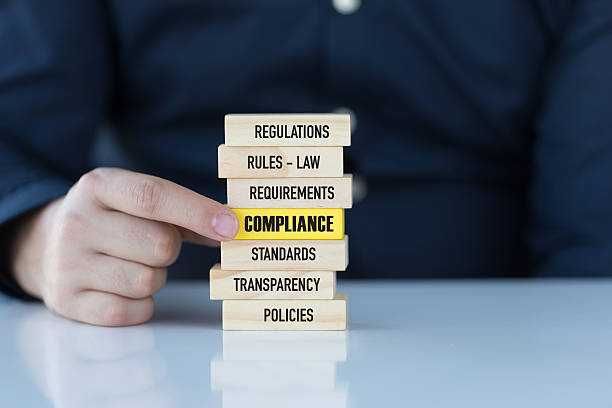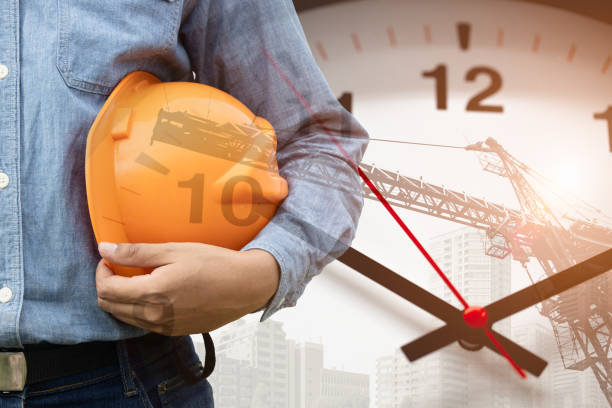Tips for Quick Commercial Project Approvals in Los Angeles
Starting a commercial project in Los Angeles is exciting. You can imagine your building coming to life, your business growing, and the impact it will have on the community. But along with the excitement comes a challenge: getting city approvals. LA’s permitting process can be confusing.
Table of Contents
ToggleThere are many departments to deal with, rules to follow, and timelines to meet. Even experienced developers can run into delays or unexpected costs if they don’t know the system well.
The good news is that careful planning can make a big difference. By preparing your documents properly and getting the right help, you can speed up the approval process.
JDJ Consulting Group helps clients understand these steps. We offer services like permit expediting, coordinating with city agencies, and make sure your project meets all rules. With the right support, you can focus on building your project while avoiding common delays.
🛠 Commercial Project Approval Flow
Source: Los Angeles Department of Building and Safety (LADBS)
Understanding the Approval Process
Before you try to accelerate approvals, it is important to understand the workflow and the agencies involved. Each step must be completed accurately to avoid delays that can slow your project.

Key Stages of Approval
The typical approval process for a commercial project in Los Angeles includes the following stages:
| Stage | What Happens | Why It Matters |
|---|---|---|
| Zoning & Property Research | Review property zoning, land use, and restrictions. | Ensures your project is feasible before design begins. |
| Design & Documentation | Prepare architectural, structural, and supporting plans. | Accurate documents reduce plan check rejections. |
| Permit Application & Plan Check | Submit applications and undergo city review. | Confirms compliance with safety, zoning, and building codes. |
| Inspections & Approvals | Schedule inspections for structural, electrical, and plumbing work. | Early preparation avoids hold-ups and re-inspections. |
| Final Permit Issuance | Receive the official permit to start construction. | Confirms that your project meets all legal requirements. |
Agencies Involved
Understanding the roles of each agency is critical for smooth approvals:
Los Angeles Department of Building and Safety (LADBS): Handles permits, plan checks, and inspections.
City Planning Department: Oversees zoning compliance, land use, and potential variances.
Bureau of Engineering: Reviews infrastructure impacts and public right-of-way concerns.
Fire Department & Environmental Agencies: Ensure safety and environmental regulations are met.
Strategies to Speed up Approvals
With a clear understanding of the approval process, you can apply strategies that help move your project forward faster. These approaches are widely used by successful developers in Los Angeles.
1. Engage a Permit Expediter
A permit expediter is a professional who helps navigate the complex approval process. Their expertise can save weeks or even months of waiting. They:
Identify potential issues before submission.
Communicate directly with LADBS and other departments.
Ensure documents and plans meet all regulatory requirements.
| Expediter Task | Benefit |
|---|---|
| Review Documents | Reduces rejections and resubmissions |
| Liaison with Agencies | Speeds up communication and clarifications |
| Problem Resolution | Avoids delays caused by unforeseen issues |
| Timeline Management | Keeps the project on schedule |
2. Submit Complete and Compliant Documentation
Incomplete applications are a common reason for delays. Make sure every submission is thorough and meets city standards:
Detailed architectural and structural plans.
Fully completed permit application forms.
Required supporting documents such as environmental or traffic reports.
3. Leverage Technology and Online Tools
Digital resources streamline the process and reduce time spent traveling to offices:
ePlanLA: Electronic submission of plans for faster review.
ZIMAS: Online zoning and property research.
LADBS Online Services: Application tracking and inspection scheduling.
4. Utilize Express Plan Check Services
LADBS offers express plan checks for certain projects. Hence, providing faster review for small to medium developments. Benefits include:
Shorter turnaround times, sometimes same-day or next-day.
Clear deadlines that help you plan construction schedules.
Reduced risk of backlog delays.
5. Maintain Regular Communication with City Departments
Consistent follow-up can prevent unnecessary delays. Check your application status regularly and respond promptly to information requests. Also, maintain professional relationships with department staff. Being proactive can often save weeks of waiting time.
Common Challenges and How to Overcome Them
Even when you plan carefully, commercial projects in Los Angeles can face roadblocks. Knowing the common challenges ahead can save time, money, and frustration.

Zoning and Land Use Issues
Zoning is one of the most frequent reasons projects get delayed. Every property in LA has rules about what it can be used for. Before submitting plans:
Check zoning early: Use the ZIMAS system or speak with the City Planning Department. This helps confirm whether your project is allowed at the location.
Clarify unclear rules: Sometimes, zoning language is confusing. Ask planning officials for guidance to avoid mistakes.
Plan for variances: If your project does not fully comply with zoning, you may need a variance. Filing early for this can prevent long delays later.
By addressing zoning upfront, you can avoid redesigns and hold-ups that often slow projects down.
Environmental and Historical Restrictions
Some areas in Los Angeles have extra rules to protect the environment or preserve historical sites:
Conduct environmental impact studies early to identify any potential issues.
Check for historical preservation restrictions before finalizing plans.
Make necessary plan adjustments in advance to meet regulations.
Inspection Delays
Inspections are a required step, but they can cause delays if not planned carefully:
Schedule inspections as soon as possible.
Ensure all work is complete and meets code requirements before requesting inspection.
Keep clear, professional communication with inspectors to avoid misunderstandings.
A proactive approach to inspections can prevent unnecessary waiting. It helps keep your construction schedule on track.
⏱ Average Commercial Permit Approval Timeline (Weeks)
Source: LADBS, 2025
Best Practices for Ongoing Projects
After your approvals are in progress, following best practices helps keep your project moving efficiently.
Maintain Open Communication
Communication is critical at every stage:
Regularly check the status of applications with city departments.
Respond promptly if the city requests additional documents or clarification.
Maintain professional relationships with staff. This can help resolve issues quickly and avoid delays.
Keep Detailed Records
Tracking all project documentation helps in case questions or disputes arise:
Copies of submitted plans and forms.
Emails and communications with city agencies.
Inspection reports, approvals, and notes from meetings.
| Best Practice | Why It Matters |
|---|---|
| Track submissions | Prevents missing documents or deadlines |
| Document communications | Provides clarity and reduces misunderstandings |
| Schedule inspections early | Keeps construction on schedule |
| Regularly check status | Ensures approvals stay on track |
Anticipate Potential Issues
Small problems can slow a project if not anticipated. Preparing in advance allows you to:
Avoid plan review rejections.
Reduce the need for costly redesigns.
Keep contractors and city staff coordinated.
Conclusion
Getting commercial project approvals in Los Angeles can feel overwhelming. But the process becomes much easier with the right approach. By understanding city requirements, submitting documentation, and maintaining communication, you can avoid delays.
Partnering with JDJ Consulting Group ensures your project navigates the approval process efficiently. With careful planning and professional guidance, your commercial project can progress from concept to completion faster.
Focusing on preparation and strategic planning not only saves time but also reduces stress. Thus, helping you turn your vision into reality without unnecessary roadblocks.
Ready to Get Started?
Getting approvals for your commercial project in Los Angeles doesn’t have to be stressful. JDJ Consulting Group can help guide you through every step, making the process faster and smoother.
Whether you’re just starting or need help with tricky approvals, our team is here to make things easier.
Contact us today:
Or call us at (818) 793-5058
Let’s work together to bring your project to life.

FAQs: Commercial Project Approvals in Los Angeles
1. What is a building permit in Los Angeles?
A building permit is an official approval issued by the Los Angeles Department of Building and Safety (LADBS). It allows property owners to start a construction project legally. Obtaining the permit ensures compliance with building codes and safety standards.
2. Why is the permit application process important?
Submitting proper permit applications ensures your project follows city regulations. Incomplete or inaccurate forms can cause costly delays and extend your approval timeline.
3. Who handles commercial project approvals in Los Angeles?
The Department of Building and Safety, City Planning Department, and Bureau of Engineering are key agencies. They review building plans, zoning compliance, and ensure the permit process meets city standards.
4. How can a permit expediter help my project?
A permit expediter navigates the permit application process, communicates with city departments, and resolves issues quickly. Using one can significantly reduce the approval timeline for your construction project.
5. What are common reasons for permit delays?
Delays often occur due to incomplete building plans, failure to meet code requirements, missing signatures on the application form, or unaddressed zoning laws. Early planning prevents unnecessary delays.
6. How does the plan review process work?
During plan review, the Department of Building and Safety checks your building plans for compliance with building codes. Corrections may be required before the final approval is issued.
7. Can I submit permit applications online in Los Angeles?
Yes. LADBS offers online services like ePlanLA for submitting permit applications digitally. This saves time and provides real-time updates on your permit process.
8. What fees are associated with building permits?
Permit fees vary depending on project size and type. The City of Los Angeles charges fees for plan review, inspections, and the permit application process. Paying them on time avoids project delays.
9. What are zoning laws and why do they matter?
Zoning laws dictate how properties can be used. Understanding them is crucial before submitting permit applications to ensure your building project is allowed at your chosen location.
10. How do inspections fit into the permit process?
After initial approvals, periodic inspections by Building & Safety verify that construction meets building code requirements. Scheduling inspections properly avoids costly delays.
💰 Permit Fee Estimator
Estimate based on LADBS average fees, 2025
🚀 Ready to Fast-Track Your Project?
Work with JDJ Consulting Group to streamline your commercial project approvals in Los Angeles. Avoid delays and move forward efficiently.
Contact Us Today11. What is the difference between a regular and express plan check?
A Regular Plan Check follows the standard review process. Express Plan Check is faster and often used for smaller improvement projects or simple commercial developments.
12. How do environmental reviews affect approvals?
Projects may require an Environmental Impact Report or other environmental compliance checks. Completing these early in the permit process prevents setbacks.
13. What is the role of a civil or structural engineer?
Licensed engineers review your building plans and architectural design to ensure compliance with building codes and safety standards. Their input is often required during plan review.
14. Can multiple permits be required for one project?
Yes. Large construction projects may need separate permits for electrical, plumbing, and HVAC systems. Coordinating all permits keeps your approval process efficient.
15. How can property owners track the status of their permit?
Using online tools like ePlanLA or the Angeleno account, permit holders can monitor their application, track approval timelines, and schedule inspections.
16. What are conditional use permits?
Conditional use permits allow projects that may not strictly comply with zoning regulations but can be approved with specific conditions. They are common for commercial development in Los Angeles.
17. How does a public counter help in the permit process?
A public counter allows property owners and contractors to submit building plans, ask questions, and get guidance on the permit application process in person.
18. What is the importance of compliance with building codes?
Ensuring compliance with building codes protects workers, future tenants, and the community. Non-compliance can cause final approval to be withheld and create legal issues.
19. What are typical approval timelines for commercial projects?
Approval timelines depend on project complexity. Simple improvement projects may take a few weeks, while larger commercial renovation projects can take several months.
20. How does JDJ Consulting Group assist with approvals?
JDJ Consulting Group offers specialized services, including permit expediting, guidance on permit applications, and coordination with city agencies. Their support minimizes costly delays and ensures a smooth permit process.
21. What is the role of the Los Angeles Department of Building and Safety in approvals?
The Los Angeles Department of Building and Safety (LADBS) reviews building plans, enforces building codes, and issues permits. Their oversight ensures that construction projects meet safety standards and city requirements.
22. How do permit fees affect commercial projects?
Paying the correct permit fees is essential for moving forward. Unpaid or incorrect fees can stall the permit process and delay final approval for your building project.
23. Can I manage multiple permit applications at once?
Yes. Managing multiple permit applications for a commercial renovation project or tenant improvements is possible. Using online services and a permit expediter helps streamline the process and prevents costly delays.
24. How does the plan check process influence project timelines?
The plan check process reviews all building plans for compliance with building code requirements. Delays in plan checks can extend approval timelines, so submitting complete and accurate documents is crucial.
25. What are the benefits of using a permit expediter in Los Angeles?
A permit expediter guides property owners through the permit application process, communicates with Building & Safety, and resolves potential issues early. This helps keep your commercial development on schedule and minimizes unnecessary setbacks.
Error: Contact form not found.







Hello! We are interested in promising projects for investment. If you have an innovative idea or business model but lack the funding to implement it, we invite you to discuss support options.
[url=https://wa.me/+380669265774] Text me on Whatsapp[/url]
Hey, you can reach out to our consultants at (818) 793-5058 to discuss your project and get the advice for free. Or simply book your consultation here: https://jdj-consulting.com/book-consultation/